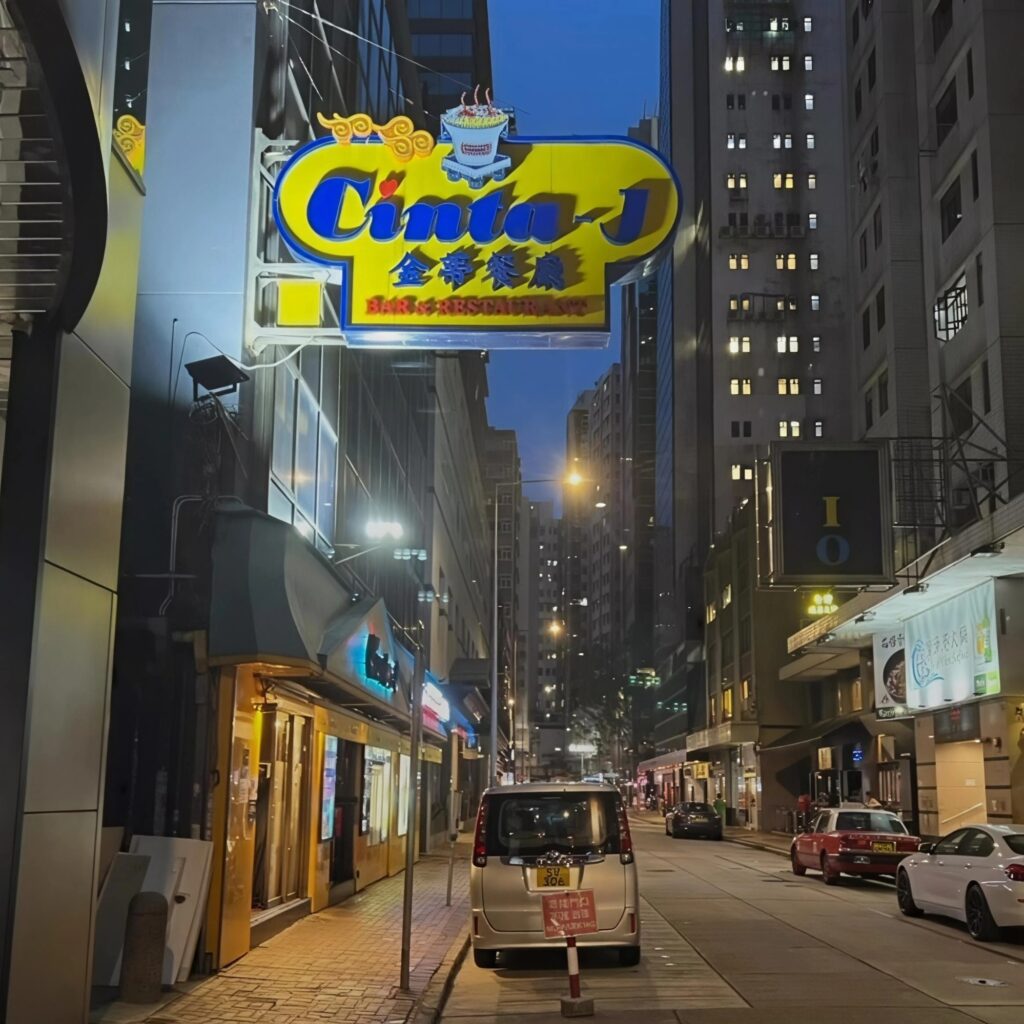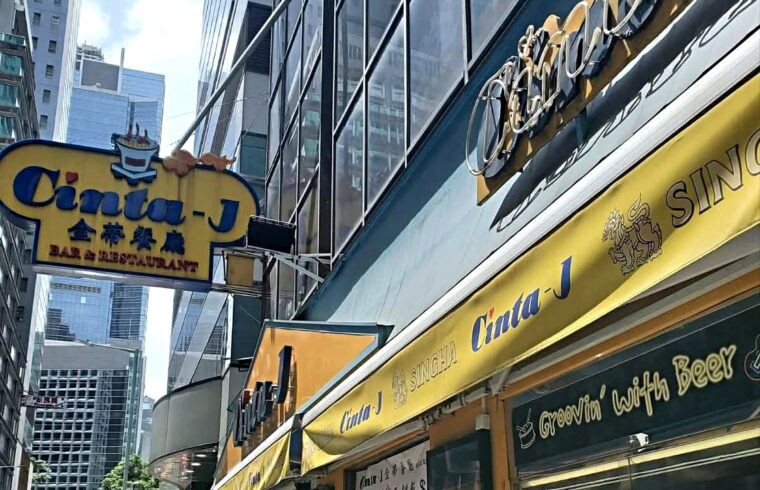
For more than four decades, Cinta-J has been Hong Kong’s heartbeat of Filipino culture: a place where the aroma of adobo mingled with karaoke ballads, and where the city’s diaspora could feel the warmth of home.
But come September 30, this iconic Wan Chai hub will close its doors, leaving a void that no other restaurant—or playlist—can easily fill.
The announcement landed like a gut punch: the Lees’ landlord has sold the building, and the family-run restaurant, which has been a sanctuary for 42 years, has no choice but to say goodbye. Bryan Lee, son of the founder Alan Lee, and his wife Cris wept when they received the news.
Cinta-J is more than a dining spot; it is a living archive of memories. Its origins date to 1983, when Alan Lee opened the first Cinta just off Hennessy Road as an Indonesian restaurant, reflecting the family’s Chinese-Indonesian roots. But Hong Kong’s burgeoning Filipino community soon caught his eye. He traveled to Manila in search of chefs, musicians, and managers, transforming the menu to Filipino favorites by 1986.
“Cinta means love in Indonesian—same as in Filipino,” Alan would say, a simple word that became a mission. The restaurant quickly became a home away from home, a place where overseas Filipino workers (OFWs) could eat, sing, and laugh in Tagalog, far from the islands they longed for.
The expansion to Jaffe Road in the 1990s gave birth to Cinta-J, “junior” to the original yet equally beloved. While the original shuttered in the early 2000s, Cinta-J remained the sole branch, serving generations of Filipinos and anyone seeking the vibrancy of its music, food, and culture.
Over the years, its tables hosted celebrities like Sharon Cuneta, Robin Padilla, and even former presidents Gloria Macapagal Arroyo and Rodrigo Duterte. Yet its real magic was for the everyday patrons: domestic helpers, engineers, bankers, architects, students—all drawn by the rare combination of hearty Filipino food and a space where their language, songs, and stories were understood.
“In Hong Kong, they can’t hear Tagalog music on the radio, they can’t buy the CDs,” Bryan Lee explained. “So they feel like home when they come here. They can enjoy their food and listen to their music.” Live singers and bands performed regularly, offering both solace and celebration, creating moments of joy that extended far beyond the dining table.
The outpouring of love on social media has been overwhelming. Rowena Gonzales, a Canadian-born architect who has lived in Hong Kong for 19 years, called Cinta-J “like a warm hug coming here,” a rare place where cultural memory and daily life intertwined.
Content creator CrisTy Mindanao Lee shared: “One of the group na sobrang mami-miss ko sa Filipino community. Thank you all so much for supporting us for so many years… Cinta-J Family love you all!”
Others, like Jennifer Jacob Bartolay, reminisced: “It’s been our favorite spot for so many years… Thank you so much for all the delicious meals, great times, and wonderful memories.”
Even as the closure approaches, the Lees are not ready to vanish from Hong Kong’s Filipino culinary scene. “We just have to find the right time and location, the right size,” Bryan said. “It’s not easy to plan a restaurant or bar, but I can assure our guests that, soon, you will hear our name again.” Cris added, “Hoping and praying. Just believe it.”
Cinta-J’s closure is more than the end of a lease; it is the silencing of a stage where generations sang their nostalgia and clinked glasses in solidarity. In a city where cultural roots often feel fleeting, Cinta-J was a rare and enduring refuge—a place where love, music, and food came together to remind the Filipino diaspora that no matter how far they are from home, home can always find them.











